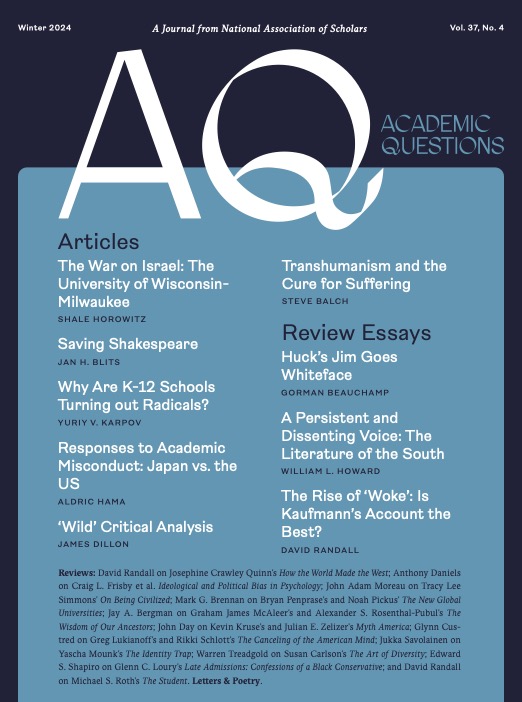The following three epigrams are from The Greek Anthology, containing poetry from the Classical and Byzantine periods of Greek literature.
Translated by Keith Whitaker
10.41, Lucian of Samosata (125 – probably after 180)
The soul’s wealth is the only true wealth.
Otherwise, the more one has the more of pain.
It’s right to call him affluent, nay, rich,
Who knows how to use life’s goods.
But to waste oneself in schemes,
Striving to heap riches upon riches—
That man labors like a bee in a nook of a comb,
Hoarding up honey for others.
10.118, Anonymous
How was I born? Where am I from? Why am I here? To leave again?
What can I learn, I who know nothing at all?
Being not, I came to be; naught shall I be, as I was before.
Nothing, nothing at all, is the race of men.
But come, and pour for me that pleasure-loving God:
This drug is evil’s antidote.
10.8 Aulus Licinius Archias (120 – 61 BC)
Not much to look at—that’s me, Priapus,
Stuck on this spur with the gulls, between two worlds—
Pointy head, no feet, like the graffiti
That sons of laboring fishermen
Scratch on sandy beaches.
But if some man with rod in hand, looking for a catch,
Calls on me for help,
I come, faster than the wind can blow.
For I can see what gleams and darts beneath the waves. A god is like the things of men:
It’s not the size. It’s how you use it.
An Invitation to a Voyage1
Charles Baudelaire (1821-1867)
Translated by Catharine Savage Brosman
My sister, my child,
Think of the delight
To go live together yonder, there!
To love at leisure,
To die from pleasure
In the country that resembles you!
The moisty sights
Of those blurred skies
For me have the appeal
and hold the mysteries
of your deceitful eyes
Shining through their tears.
There, all is order, loveliness,
Luxury, calm, exquisite sense.
Fine furniture, dark and old,
Polished by the years,
Would decorate our chamber;
The rarest blooms
Joining their perfumes
To the vague scent of amber,
Rich ceilings, coffered,
Deep mirrors among
Splendors from the east,
Everything offered
would speak in measure
The soul’s sweet native tongue.
There, all is order, loveliness,
Luxury, calm, exquisite sense.
See, asleep in their slips,
Along the canals, those ships
Of roving temper, great sea worth;
It is to satisfy your least
Desires, any, without number,
That they come from the ends of the earth.
Look, how suns afire
Clothe the fields,
The waterways, the city entire,
In hyacinth and gold!
The world falls into slumber
In a warm glow as it yields.
There, all is order, loveliness,
Luxury, calm, exquisite sense.
Lotte’s House
—Grästen, Denmark
From Lotte’s house, we can cross a road, walk a few paces
past a bus stop, and then, behind a row of trees,
reach the railroad tracks for trains to Copenhagen,
every other hour. They barely pause. From Lotte’s house,
one can also take a time train, back to the nineteenth
century. For Lotte’s house is a converted station,
built when the tracks were at the rear, not across the road.
My bedroom, spacious, was the stationmaster’s office—high
windows on two sides, coffered ceiling of a herringbone
design, dark wood and light. He lived upstairs,
where Lotte has her quarters. Decades echo one another
on the walls. Three more steps, and we’re in the turret,
sentinel. I gaze through lucid panes; the sky pulls hard at me,
bright dome above the sweep to the circumference. Vision,
revery are ours, as Lotte opens for us sparkles in a bottle
brought from Italy. Denmark is Lotte’s birthplace, but she’s
International, having married a hotelier from Germany,
with properties on sundry continents. She speaks
four languages with fluency and knows the manners
needed for the great, the less, the least. A cloud appeals to me,
pale in its deceptive candor (rain is forecast
for tomorrow morning, when we hoped to have a picnic
by the shore of a blue Baltic fiord). Oh, it’s easy to be happy
during cultivated hours, with friends and the fine flower
of good taste in art and nature’s art—happy in my way,
that is, in my benign misanthropy. But what of those
despairing of their lives—no time, or time devoured by care,
no love, no pocket money, and no sense of leisured occupations?
—September’s coming. The hydrangeas in Lotte’s garden,
blowsy and full-petaled, are the last. But mind
blooms freely, seasoned, flying off, seeking reflections
of the whole. God willing, I’ll be back, dear Lotte, I’ll be back.
Catharine Savage Brosman is professor emerita of French at Tulane University; [email protected]. She is the author of fifteen collections of poetry, the latest of which is Aerosols and Other Poems (Green Altar Books, 2023). Her Partial Memoirs has just come out by the same press. Brosman’s poetry has appeared regularly in AQ. In our winter 2023 issue she reviewed Jonathan Chaves’s Surfing the Torrent in “Poetry and the Human Experience.”
1 This poem, first published in 1853, is set in Amsterdam, not Venice, as readers may assume from the mention of canals. Although he had sailed to the Indian Ocean, Baudelaire had not yet visited the Netherlands, but it has been demonstrated that he had read various descriptions of the kingdom by well-known writers. By “the east,” he meant, presumably, the Dutch East Indies, which he never saw.
Scholars consider that the poem was written for Marie Daubrun, an actress. The phrase “deceitful eyes” (traîtres yeux) is taken as indicating her green eyes as well as her perceived treachery. “Colombine,” a poem by Paul Verlaine (1844-1896) featuring characters from the Italian comedy, speaks of eyes “green like those of cats” as being “perverse, malicious.” It is noteworthy that, upon the publication of Baudelaire’s Les Fleurs du mal in 1857, several poems in the collection were banned by court order as being offensive to public morals. Indeed, his work often depicted excess in wine as well as drugs and sex, including lesbian relationships.
This poem, however, presents a distilled and aesthetic understanding of sensual pleasures. As he recognized—and as the title of that collection indicates—there is a bipolar vein to his vision and writing, and, many believe, to his personality itself.
Photo by Josh Harrison on Unsplash














